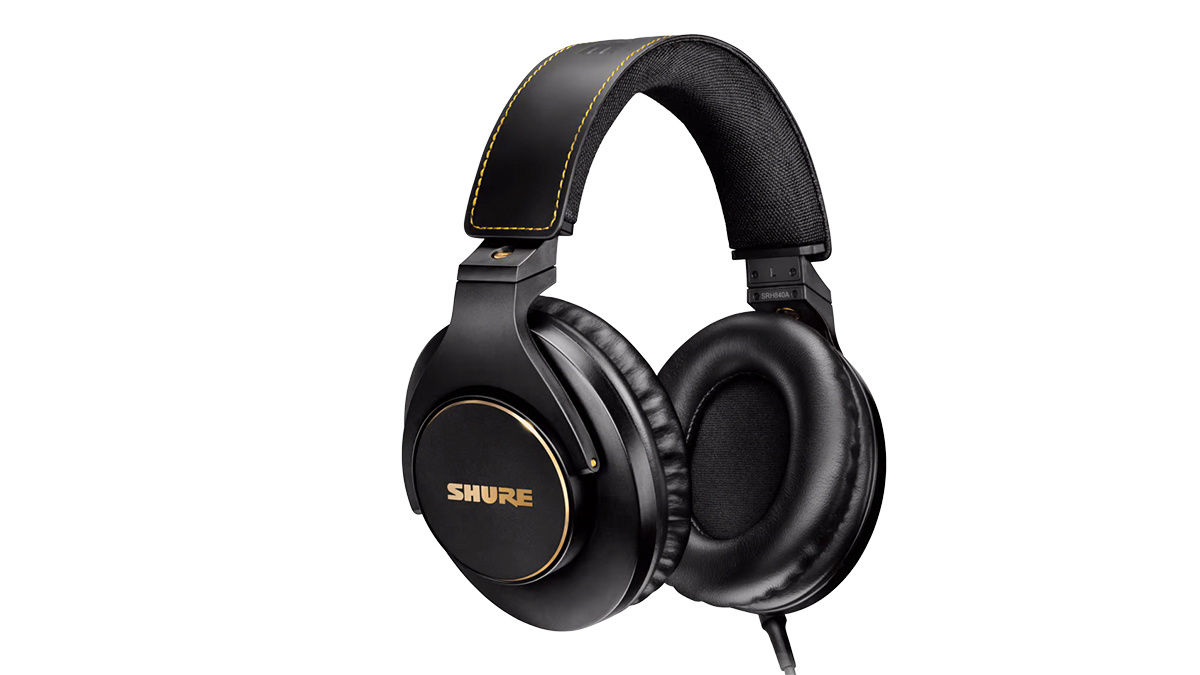MusicRadar Verdict
Excellent workhorse headphones that will do the job for recording and monitoring in the studio.
Pros
- +
Pleasing, detailed sound.
- +
Comfortable to wear for long periods.
- +
Long, locking cable.
Cons
- -
Not the best for finalising mixes.
MusicRadar's got your back
What is it?
Best known for its microphones, Shure is also a significant player in the world of studio headphones, both in the consumer and pro audio sectors. Shure’s redesigned SRH440A and SRH840A edge towards the former category, but are still competitively priced.
Both sets of cans are designed to be more comfortable and durable than their predecessors, while looking a bit nicer, too. They’re easy to tell apart; the SRH840As - on test here - differentiate themselves with some nice gold lettering on the backs of the earcups, along with gold bolts and stitching.
A good job, too, we say - if you’re paying more for a set of headphones, you don’t want them being confused with the cheaper model…
The SRH840As’ packaging screams functionality rather than ‘lifestyle’ - it says on the box that they’re designed for recording and content creation, and there’s little in the way of marketing sloganeering. Lift the lid and, as well as the cans, you’ll find a nice long (9-foot) cable - this locks into the left-hand earcup with a twist - a threaded gold stereo 1/8-inch to 1/4-inch adapter and a carry bag.
There’s also a paper manual, though beyond a few safety and cleaning instructions, this doesn’t tell you a great deal. That said, if you need instructions on how to use a pair of headphones this simple, you probably shouldn’t be allowed in the studio in the first place.
These are closed-back cans, and come with 40mm neodymium dynamic drivers.
- Best budget studio headphones: performance on a smaller budget
- The best closed-back headphones for music makers
Performance And Verdict
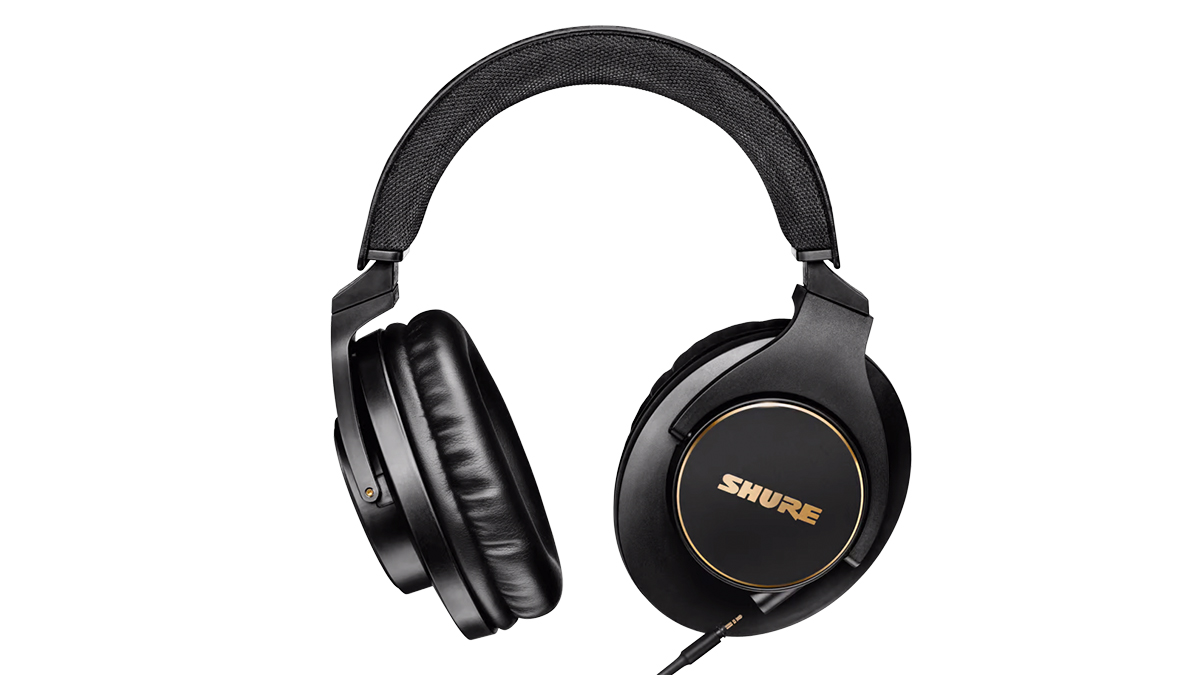
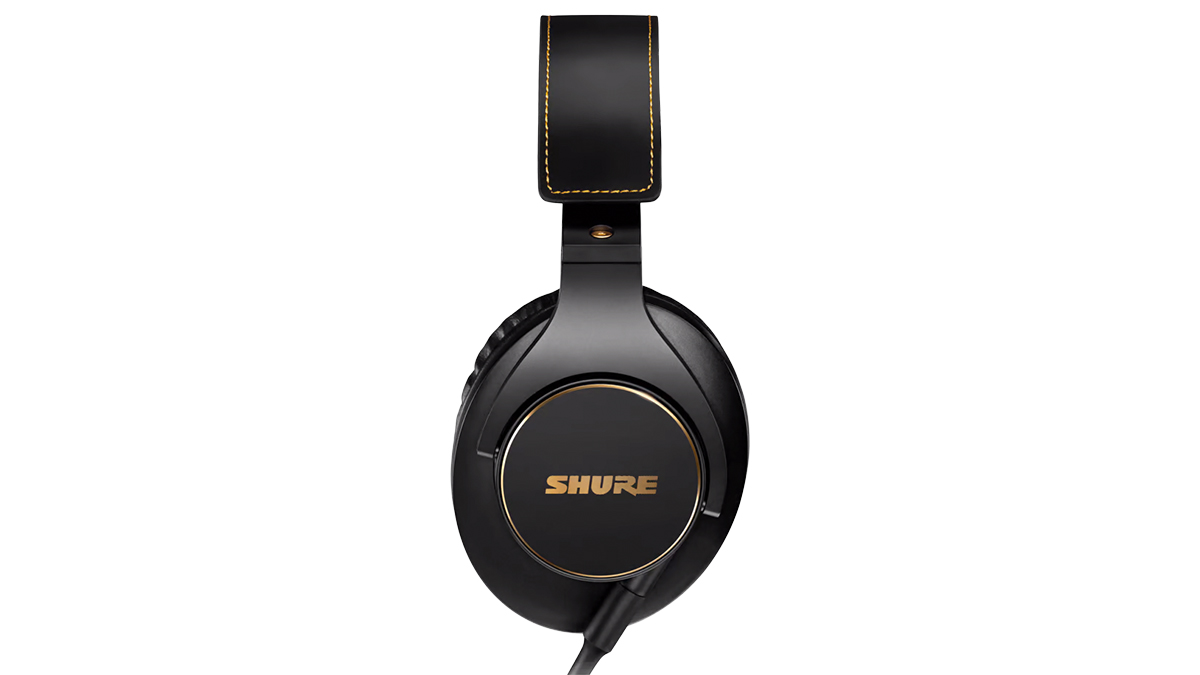
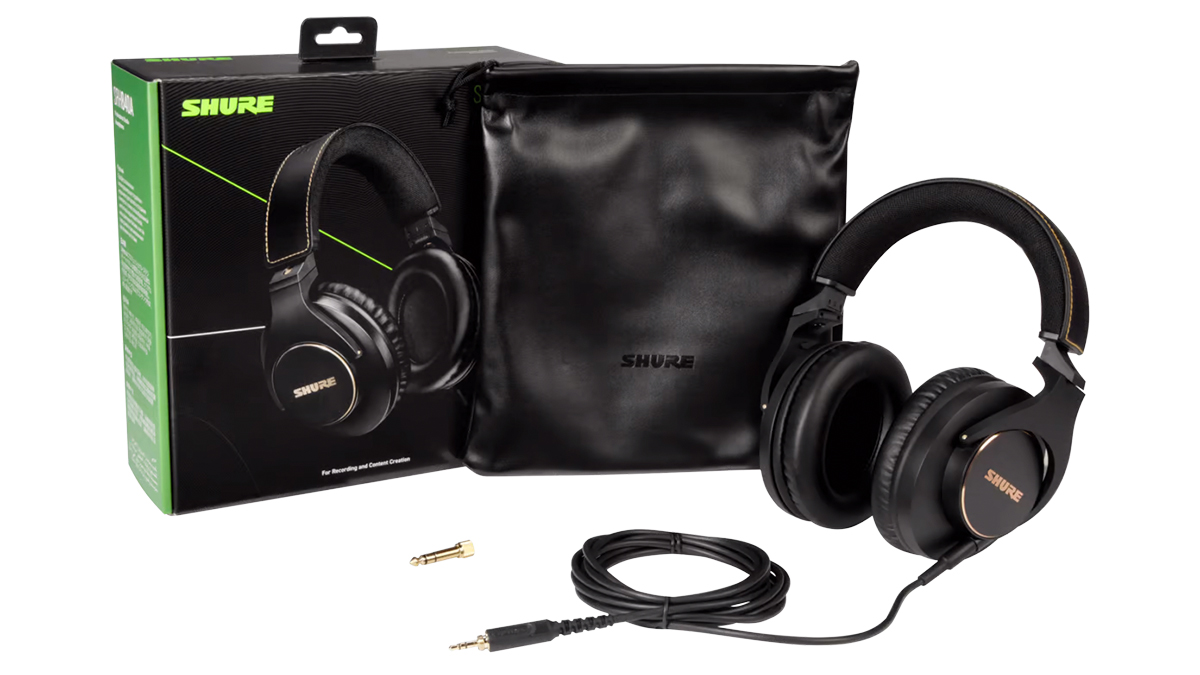
We’d file the SRH840As' design as ‘classy but conservative’. That gold lettering/stitching certainly adds a touch of exclusivity, and the overall feel and level of build quality is better than you'd get at the entry-level.
These are comfortable cans, too - light enough for you to wear for long periods at a time, but not so featherweight that you’ll forget you’ve got them on. The leather-style earpads sit nicely on your ears without too much pressure - they swivel, giving you a bit of extra flexbility - and the band has plenty of cushioning when you’re in it for the long haul.
The long cable is useful in the studio as you move around your gear, but would be annoying when you're on the move. If you want to use these headphones for commuting, you'll probably want to invest in a shorter one as well.
In use, the SRH840As are solid performers across the frequency spectrum, revealing plenty of mix details that you wouldn’t be able to pick out with less capable headphones. We wouldn’t say that their response is completely flat, though; there’s a hi-fi quality to the sound, and you wouldn't describe it as clinical. This makes it very pleasing and easy on the ear - we enjoyed using the SRH840As for straight-up music listening - but not perfect for finalising mixes.
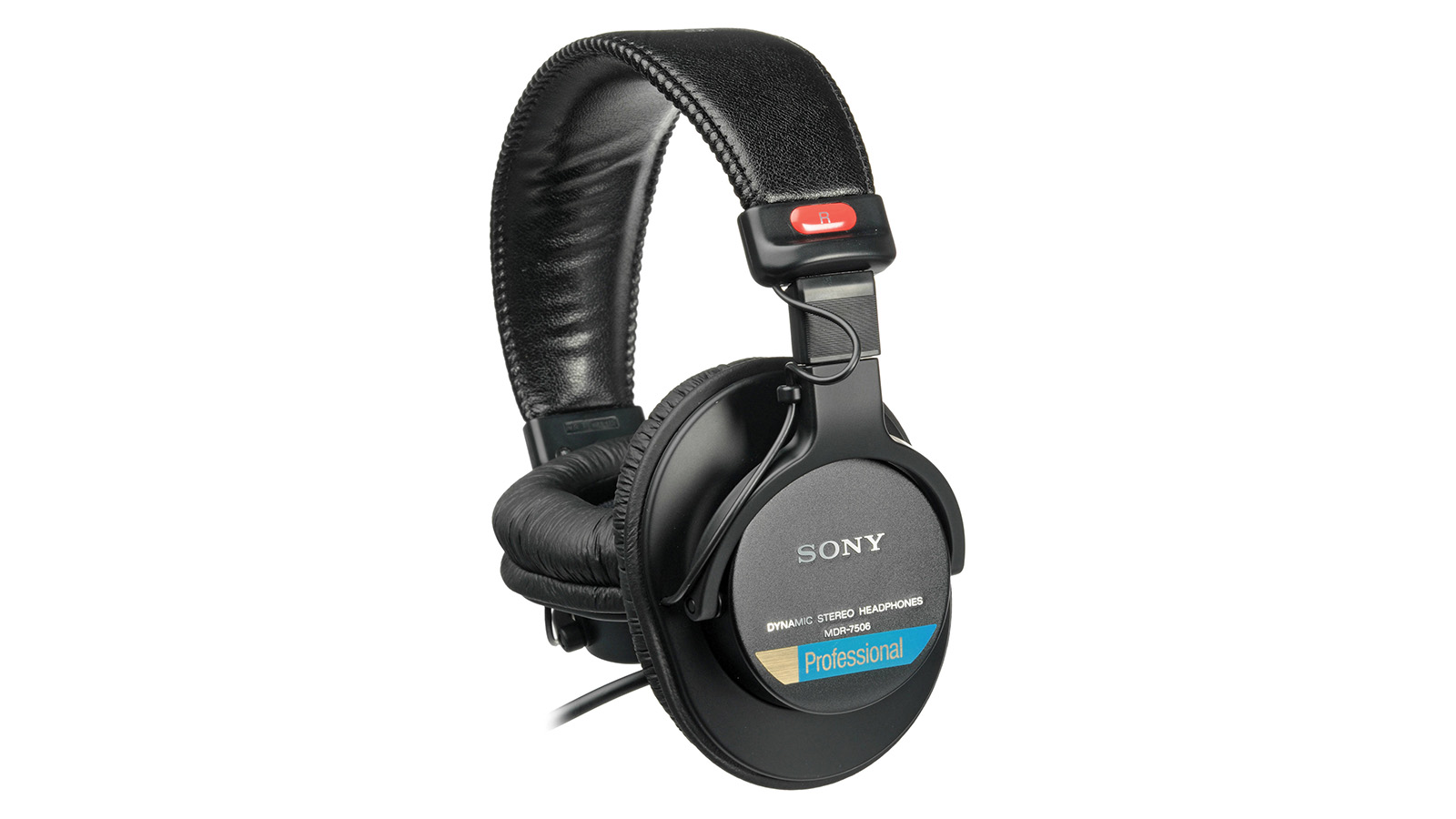
There’s great isolation, though, which you’ll appreciate if you’re working in a noisy environment, and for the majority of studio tasks, including recording and monitoring, the SRH840As are admirable performers. Podcasters should be interested, too.
As such, we’d put these SRH840As firmly in the all-rounder category - a practical option that won’t break the bank and will be useful in a wide variety of music-making and content creation situations.
Hands-on demos
Ryan Ho
Happy Mag
Specifications
- Type: Circumaural, closed-back
- Driver type: 40mm dynamic
- Impedance: 40Ω
- Sensitivity: 197dB/mW
- Frequency Response: 5Hz - 25kHz
- Cord: 3m, straight
- Contact: Shure

I’m the Deputy Editor of MusicRadar, having worked on the site since its launch in 2007. I previously spent eight years working on our sister magazine, Computer Music. I’ve been playing the piano, gigging in bands and failing to finish tracks at home for more than 30 years, 24 of which I’ve also spent writing about music and the ever-changing technology used to make it.
With its latest free update, Ableton has finally turned Note into the app I always wanted it to be
Technically capable, but struggle to make your tunes sound musical? 5 simple music theory hacks to make your tracks stand out
"Despite its size, it delivers impressive audio quality and premium functions as well as featuring a good selection of inspired sounds": Roland GO:Piano 88PX review
